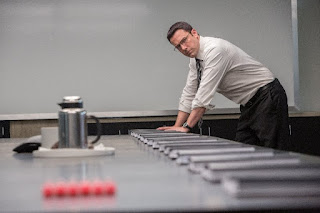Neuro Note 5: Inside Out

Although I had heard a lot about the children’s movie Inside Out , I had never seen it, and never considered that it would be a movie that I could write a neuro note about. I was interested in how this would connect with neuro, so I set out to watch it. The movie is about an 11-year-old girl named Riley that is going through a life-changing move from the mid-west to San Francisco. The movie depicts the ups and downs of Riley’s emotions, and how this event is being processed through each of her emotions inside her brain. The movie personifies the emotions Joy, Fear, Anger, Disgust, and Sadness and tells of their everyday adventures in an 11-year-old, and even occasionally reveals the thoughts/emotions of her parents. I think this movie is great for children to watch so that they understand their emotions, and as the movie shows, that each emotion has a place in their life and they all have important jobs (even sadness) in order to make up a person’s personality. I...

